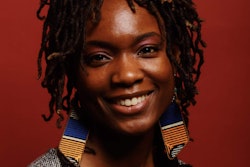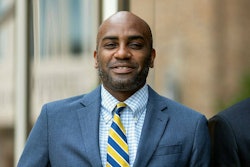Reluctant Discussions
Long before Hurricane Katrina hit, the academy was already looking more closely at the issue of class in regards to diversity. Following the U.S. Supreme Court’s rulings on the University of Michigan’s affirmative action policies, several colleges and universities, shying away from considering race, began to look at class via family income as a means to diversify their student bodies. Some schools began to offer more financial aid in forms of grants as opposed to loans to attract students from low-income households. This is a start in the class conversation, and Skidmore College professor Janet Galligani Casey says it’s indeed time for liberal arts colleges to examine how current diversity rhetoric ignores class distinctions.
In the “Class Matters” interview conducted by Diverse correspondent Patricia Valdata, Galligani Casey says, “Working-class culture is all the things middle-class culture often is not. The academy explicitly is setting up students for white-collar jobs, not blue-collar jobs, so right there you have an erasure of that blue-collar experience.”
Speaking of class, it has been well reported that Hurricane Katrina caused more than physical damage. Many of its victims have been traumatized, their lives put on hold until homes are rebuilt, jobs are found and families are reunited.
It was obvious to all who watched the television news coverage following the hurricane that most of the victims left behind with nowhere to go and no way out of the city were Black and poor. Many of us wondered whether race was a factor in the agonizingly slow response by federal officials.
On-air analysts, politicians and others, however, were initially reluctant to discuss whether race played a role. They were somewhat more comfortable discussing issues of poverty and/or class, but it’s virtually impossible to discuss class and classism without talking about race and racism.
Washington Post columnist Terry Neal reported that in an interview with three Congressional Black Caucus members they, too, were less than eager to discuss the issue of race in light of the federal response to the hurricane.
“No one was left behind intentionally because they were Black,” Neal quoted U.S. Rep. Mel Watt, D-N.C., as saying. “But most of those who were left behind were poor. And wherever you go, those who are poor are going to be disproportionately Black in some areas, disproportionately Hispanic in some areas and disproportionately Native American in some areas.”
Said U.S. Rep. James Clyburn, D-S.C., “Nobody wants to talk about poverty. Nobody wants to talk about race. Nobody wants to talk about the nexus of the two.”
In “Contemplating Katrina’s Chaos,” senior writer Ronald Roach reports on how some scholars are getting involved in shaping public and government responses to the race and poverty issues exposed by the hurricane. A number of scholars and policy makers were optimistic following President’s Bush Sept. 15th speech that promised serious national conversations about race and poverty. However, says Dr. Dorian T. Warren, a public policy postdoctoral fellow at the University of Chicago, “You would think that we would be looking at policies that reduce poverty, yet we’re seeing policies that will exacerbate the problems.”
Hilary Hurd Anyaso
Editor
© Copyright 2005 by DiverseEducation.com















